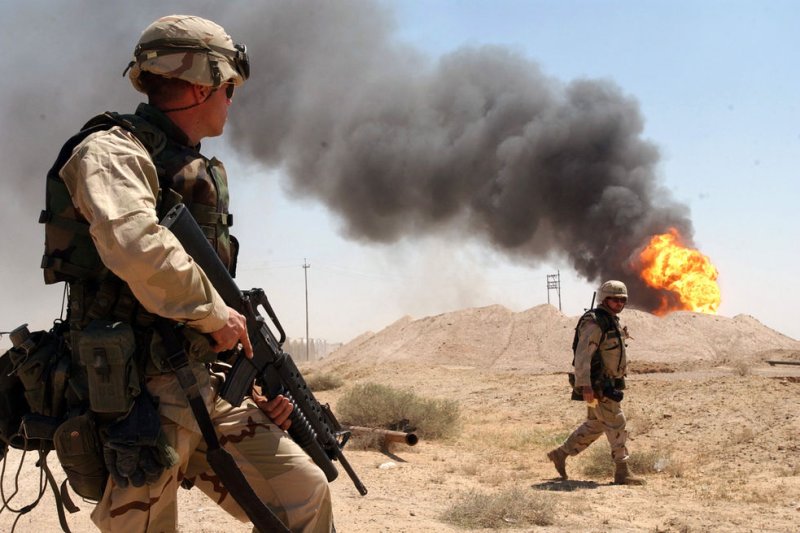A new report from IHS finds geopolitical risks could be resurfacing because of a balancing in the market for crude oil, a matter that should be considered by the next U.S. president. U.S. Navy/Arlo K. Abrahamson/UPI |
License Photo
ENGLEWOOD, Calif., June 2 (UPI) -- The next U.S. president may be holding the keys to global leverage as lower crude oil prices push geopolitical risk back on the table, a new report found.
A report from consultant group IHS said the chronic glut of oil that permeated through the market last year suppressed the influence that global conflict and terrorism had on the market. Islamic State attacks on France last year, it noted, had little influence on the price of crude oil, when the reverse would have occurred had markets been short on energy supplies.
IHS said that, from its perspective, the global demand for crude oil could be catching up with, or even outpacing, supply growth. This, said Carlos Pascual, a senior vice president for IHS Energy, could mean the return of a link between oil and international affairs, particularly those in the Middle East.
"Despite a U.S. election campaign that projects the country turning inward, giving a blind eye to the region's deteriorating realities will ensure that the stalemate of conflict grinds forward and that the United States loses influence and credibility in addressing threats that have already touched us at home," he said in a statement.
Pascual, who wrote the report for IHS, said geopolitical risk is contingent in part on the price of crude oil. That, in turn, could influence the degree to which the United States is concerned about developments in the Middle East, Latin America and Eastern Europe.
U.S. military forces are assisting with Iraqi military efforts to combat the Islamic State, which uses oil to help finance its regional ambitions. The low price of oil, meanwhile, means Iraq is in the grip of a fiscal crisis. Financial dynamics could also influence the relationship between Russia and Iran, which is seeking new partners as sanctions pressures ease. That, in turn, influences how the crisis in Syria plays out, the report said.
Vermont Sen. Bernie Sanders, a Democratic candidate for president, said he'd ban hydraulic fracturing if elected. The practice, known as fracking, is partially behind the rise in U.S. crude oil production, which has influenced the dependency on foreign oil. Former Secretary of State Hillary Clinton has proposed tighter regulations on the industry while Donald Trump, the presumptive Republican nominee, has called for an America-first energy policy that relies on an end to imports from members of the Organization of Petroleum Exporting Countries.
"For the next U.S. president, no foreign policy choice will be more important than deciding whether and how to end this reordered stalemate of conflict," Pascual said. "Middle East instability drives international terrorism, the flow of refugees and adds a risk premium to the price of oil."















